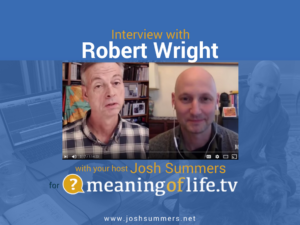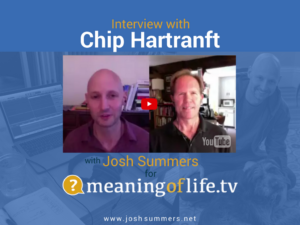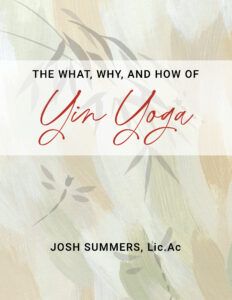Can Yin Yoga heal the wounds of the world and bring about world peace? Probably not – at least not on its own – but it might be an important complement to other more familiar forms of activism.
Yin Meditation
From Perch to Flight – Yin to Yang Meditation
In many ways, the perch is the cornerstone concept from which both steadiness of being (samatha) and deeper understanding (vipassana) emerge. Yin Meditation encourages a receptivity to all experience, and in this approach the perch functions as a place of safety and rest when deemed necessary by the meditator.
The Way of Yin – Receptivity and Creativity on the Path
Just as a musician trains their ear, their sense of time, their technique, their sensitivity in relationship to other musicians, in other words, just as a musician can develop these various musical capacities, I see different meditation approaches as ways of deepening and refining contemplative capacities.
The Way of the Inner Bodhisattva: How to Work With Internal Parts
Periodically checking in with “Inner Parts” in your practice tends to promote a greater harmonization of their energies, leading to less frequent periods of internal conflict amongst them. And the inverse seems to be true as well: Neglecting to check in with these parts can lay the groundwork for more intra-personal and inter-personal conflicts.
Interview with Robert Wright: Where Yoga Meets Meditation, and Mindful Resistance
In our recent conversation, we discuss the relationship between yoga and meditation, and then I prompt Bob to talk about his new project The Mindful Resistance Newsletter. It is an outstanding weekly digest of current events, presented soberly and succinctly. Bob’s intention is to mute the flame of emotional outrage and overcome the divisiveness of tribalism in order to promote real cognitive empathy and more beneficial engagement.
Interview with Gil Fronsdal: The Buddha Before Buddhism
In this interview, I ask Gil about his new book, The Buddha before Buddhism, in which Gil provides translation and commentary to one of the oldest extant Buddhist texts, The Atthakavagga, or The Book of Eights. What was so interesting for me to hear was that, perhaps, the Four Noble Truths – widely believed to be the first discourse given by the Buddha – may not have been his first teaching, at all.
Interview with Chip Hartranft: The Yoga Sutra
A few weeks ago, I had the pleasure of interviewing my friend, Chip Hartranft, for MeaningofLife.tv. In the yoga and meditation world, Chip is the rare practitioner who balances encyclopedic […]
Accomplished Fugitives
Recently, while working on the Oliver Sacks piece, I found myself browsing through Maria Popova’s fantastic website: www.brainpickings.org. For a trove of material on the meaningful life, one need not look any further. […]
Holistic Development
Over the last few months, I have tried to explore a gentle critique of one modern, popular definition of mindfulness. While formulating this critique (here, here, and here), I’ve been wrestling […]
The Problem with Non-Judging
Over the last two entries, here and here, I began to look at the potential ways in which a popular definition of mindfulness can lead to mis-application and/or confusion within the actual practice. […]
Unlocking the Present
Last post, I began a gentle critique of a definition of mindfulness that comes from Jon Kabat-Zinn: “Mindfulness means paying attention in a particular way: on purpose, in the present […]
Minute of Definition
As you undoubtedly are aware, mindfulness is gaining in popularity; it’s seemingly everywhere now. So much so that it has its own name: The Mindfulness Movement. And as with any […]
Losing an “I”
Last week, I attended a public conversation between Sam Harris, author and neuroscientist, and Greg Epstein, the Humanist Chaplain at Harvard University. Watch the highlights here and the full video here. Harris has […]
Wise Stillness (Samadhi) 4/4: Twinkle, Twinkle
In the final installment on Wise Stillness (and also the final installment on these short reflections on the Noble Eightfold Path), I want to try and draw some themes together, […]
Wise Stillness (Samadhi) 3/4: Don’t Focus on the Breath
In the first two segments of this short series on Wise Stillness, I tried to emphasize two complementary attitudes that support the experience of stillness. The first, as beautifully articulated by […]
Wise Stillness (Samadhi) 2/4: No Other Single Thing
Essentialism. I recently came across a fantastic book by Greg McKeown with lots of ‘dharmic’ themes. The book is: Essentialism: The Disciplined Pursuit of Less. One of McKeown’s basic ideas is […]
Wise Stillness 1/4 (Samadhi): The Pleasure of Less
Stillness. And so we come to the final spoke of the Eightfold Path: Samadhi. Often, Samadhi is translated as ‘concentration’, but as Ajahn Brahm suggests in the clip below, it might […]
Wise Mindfulness (Sati) 3/3: Proper Balance
Balance. It’s a word we hear a lot about. Work-Life Balance. Fiscal Balance. Spiritual Balance. Protein-Carb-Fat Balance. And like so many of the spiritual faculties we read or hear about, balance, in […]
Wise Mindfulness (Sati) 2/3: Not Mickey Mouse Mindfulness
For this Minute, I wanted to address some of the misconceptions that tend to crop up around the popularized understanding of mindfulness. And these misconceptions are what I’m referring to when I say: Mickey […]
Wise Mindfulness (Sati) 1/3: Not What, But How
In these next few Minutes, I’ll be reflecting on, of all things, Mindfulness (Sati). Imagine that. Sati is the seventh aspect of the eight-fold path. Many previous newsletters (now archived on […]
Wise Effort 3/3: The Marvel of Unknowing
Last week I tried something different. At the end of the summer, I often sit a retreat at the Insight Meditation Society. But this year, the center’s schedule and my own […]








